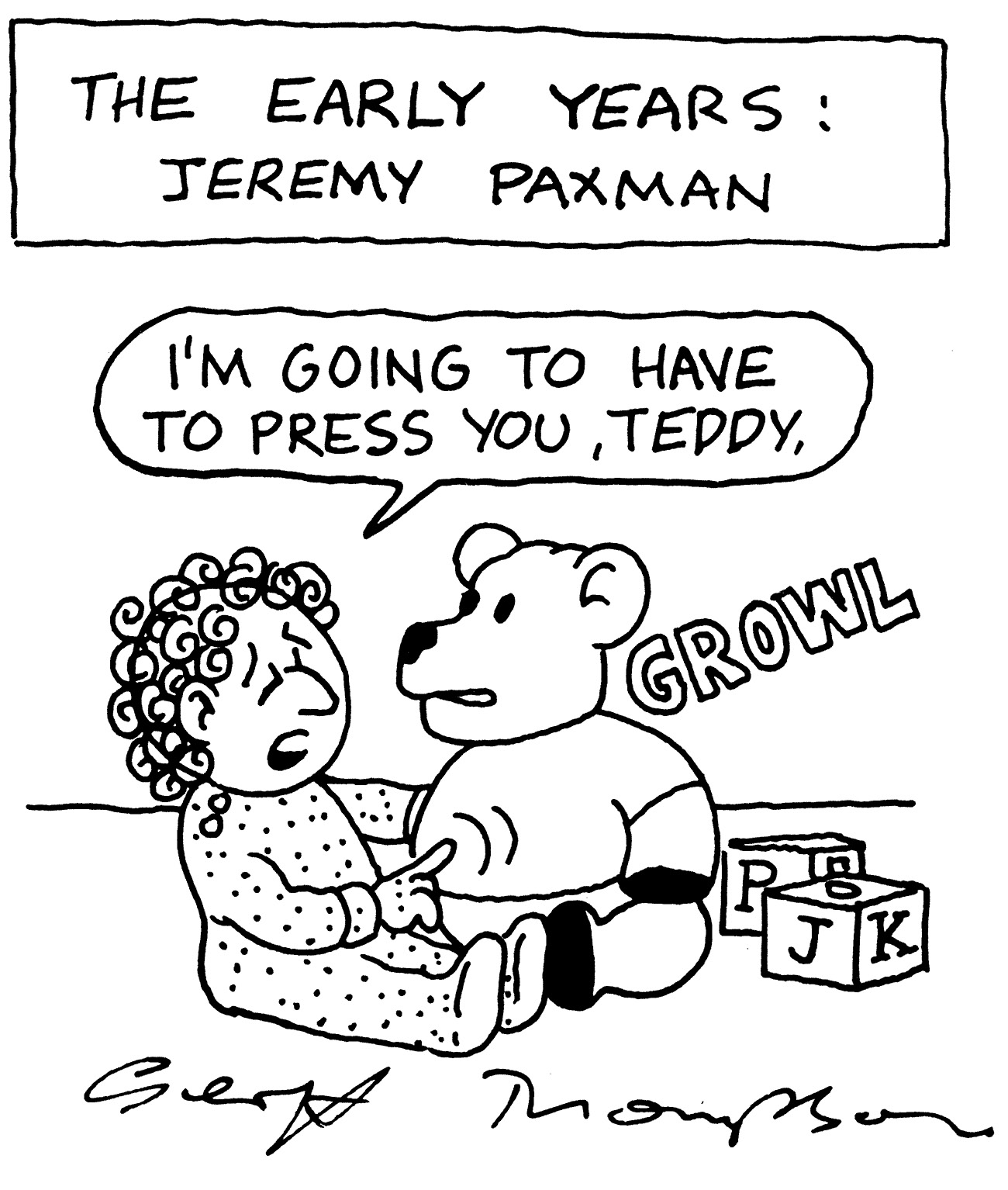
Полная версия
A Life in Questions
Dear mother and father,
How are you? I am well.
The first eleven played Abberley yesterday. We lost five–nil.
After that, it was a desperate struggle to creep over onto the back of the piece of paper, as we knew that a letter that was too short would be rejected by the supervising teacher.
Looking back on it, the life we were leading was so utterly separate from our home lives that it was a wonder we found any point of contact at all. A stranger glancing in through the big Victorian window might have guessed that the adult was there to censor what was being written. And indeed, sometimes he did: my brother Giles, who was having an absolutely wretched time, several times wrote letters reading ‘I hate it here, please come and take me home,’ which were torn up. He managed to smuggle a couple of notes out in the pockets of day boys at the school, but our parents thought he was making a fuss about nothing, and would eventually settle down. When he finally ran away and barricaded himself in his bedroom at home they returned him to the school: it was important to them that you did your duty, and ‘putting up with things’ was part of that.
By the standards of the time, I suppose the Lickey Hills Preparatory School was no worse than many others. If there were school inspectors in those days, we were unaware of them, and it seemed that anyone could open a school whenever and wherever they liked. At least we had little trouble of the kind which befell a friend enduring a similar education elsewhere. When he eventually plucked up the courage to go to the headmaster to report that the geography master kept putting his hand up his shorts, the head replied with a long-suffering air that ‘Mr Jones is what we call a homosexual. Do you know what that means? No? It means he prefers little boys to little girls. You will find that many of the staff are homosexuals. Frankly, on the money I pay them, they’re the only people I can get to work here.’
The language betrays the lazy prejudices of the time. As far as I was aware, we had no trouble with paedophiles at Lickey Hills, though one or two of the masters did seem to take a keen interest in supervising communal showers and suddenly switching the water from warm to freezing. In the popular cliché, the prep and public schools of the fifties and early sixties were alive with depraved behaviour. All I can say is that in the whole of my school career I never came across a single paedophile teacher, and very few boys with a taste for much more than the solitary vice.
Lickey Hills was a business, and, it seemed, a not very successful one. Shortage of money was a fact of life at every level. Because the school could not afford a physics laboratory, the elderly science master was reduced to describing the outcome of experiments by drawing the usual results on a blackboard. Since we had to imagine that the line of chalk was a piece of metal, we were not left much the wiser about its powers of conductivity. But if the school was poor, the teachers were much poorer. Colonel Collinson seemed the only one who had any form of car – a Messerschmitt three-wheeler in a shade of paraffin pink. When he had lifted the roof and eased his great frame and moustachioed face behind the steering bar he looked like some crazy life-sized children’s toy.
Apart from having a missing finger, Colonel Collinson must also have been bit deaf. One morning while we were at breakfast there was an explosion from the staff area.
‘Colonel Collinson, I have asked you three times to pass my wife the marmalade!’ roared the headmaster.
The Colonel mumbled some explanation.
‘Colonel Collinson,’ barked the head, ‘you are dismissed!’
There was no going back from such a public sacking, and the Colonel’s imminent departure was the only topic of conversation among us in the twenty minutes between the end of breakfast and the first lesson of the day. I cannot now recall who came up with the evil idea which ensured the poor man’s final humbling. It required several of us to carry it out, so perhaps it was just one of those things that emerges naturally and collectively. By applying all our strength first to one side of the Messerschmitt bubble car and then to the other, we levered it off the ground, grabbed a few bricks and lowered it back, so that all three wheels were just clear of the surface. A few minutes into the lesson we looked out of the window and saw the Colonel descending the school steps, wearing a British Warm officer’s greatcoat and carrying a small brown leather suitcase, which presumably contained all his worldly goods. We watched as the poor man strode to his car, opened the Perspex bubble, tossed his battered suitcase into the back, and started the engine. The wheels spun, but nothing moved. His humiliation was complete.
For schools like Lickey Hills to work their alchemy, there had to be as great a disengagement from the outside world as possible. (‘What do you expect of the parents?’ one of those paying the bill for this transformation asked my next headmaster. ‘Pay the fees and stay away!’ he replied succinctly.) Fathers generally seem to have understood this better than mothers. The son of a distinguished lawyer recalled a particular low point when he was gathered with his fellow inmates at the end of term, awaiting the arrival of his father to collect him for the holidays. He watched as his father strode into the room, grabbed another child and dragged him protesting to the car, saying, ‘Oh, do come on, Stephen.’ It was only as he was about to drive off, and the small boy managed to attract his attention by exclaiming, ‘But sir, I’m not your son!’ that the father turned, and with a cry of ‘Oh no, you’re not!’ realised his mistake.
‘Teddy boys’, with their long jackets and quiffed hairstyles, were a 1950s phenomenon. Not at Lickey Hills School – or ‘Hillscourt’, as it had by then been renamed by its bonkers proprietor and headmaster – they weren’t. Well into the 1960s they were blamed for anything that went wrong in the school grounds. On one occasion I watched the headmaster’s son chucking lighted matches into gorse bushes, and duly setting the hills alight – when the fire brigade arrived he explained that the inferno was the work of the teds, who were blamed for just about everything that went wrong at the school (apart from the hit-and-miss teaching.) Periodically, the teds clambered over a fence and vandalised the wooden huts at the end of the swimming pool. This was a concrete-lined hole in the ground, fed by a stream from the hills and replete with frogs and newts. ‘Learning to swim’ involved being dropped into the pool and trying to reach the other side before death by drowning or exposure.
The headmaster became obsessed with preventing the teds from sharing this luxury. One Sunday afternoon he decided it was time to act. Fifteen or so of the more senior boys (all aged twelve or thirteen, therefore) were summoned to his study, where, we discovered, he had amassed an arsenal that would have equipped a minor peasants’ revolt. Stacked in the corner were scythes, sickles, chisels, hammers, an air rifle and a shotgun.
‘Boys,’ he said, ‘if the teds break in this afternoon, you’re to deal with them.’
Since we knew that the local youths were all fifteen, sixteen or older, we were terrified. But we had weaponry and they, we hoped, did not. The headmaster was halfway through his pre-battle briefing when a small boy knocked on the door and entered the room, exclaiming breathlessly, ‘Sir, the teds have broken into the swimming pool!’ ‘Get them, boys!’ barked the head. The most eager sprinted for the pool. The rest of us followed at the pace of Russian conscripts being thrown into an assault at Stalingrad. Only when we reached the hole in the ground did we realise that we had left the scythes, knives and guns in the headmaster’s study.
By the time we reached the pool, the teds were clambering back over the wooden fence separating the school grounds from the local park. With a great feeling of relief we paused our mission, until in the distance we heard the headmaster bellowing that we were to bring the culprits to justice. With sinking hearts we climbed the fence and followed them into the park. The teds jogged on nonchalantly, turning occasionally to shout obscenities at the posse of much smaller boys pursuing them. Then, to our horror, they stopped and stood their ground. Two or three of them tore planks of wood from the park fence, and brandished them like clubs.
The gang leader beckoned, saying, ‘OK. One of us, and one of you.’
Jeremy Clewer, the son of a Quaker family, was one of the quietest and kindest boys in the school. He also had the misfortune to be one of the tallest.
‘You,’ said the ted, pointing at Clewer. ‘You fight.’
Clewer looked out from under his floppy fringe. This was definitely not the way the Society of Friends usually dealt with things. The head ted stepped forward and punched him. Clewer fell to the ground, and the two of them rolled around in the dust for a few minutes. The battle of champions ended inconclusively. One of the other members of the gang pointed at the identical woollen jumpers we all wore – hoops of dark and light blue – and said, ‘What is that place then, some sort of approved school?’
The two combatants brushed the dust from their clothes, and the gang sauntered on their way while we gathered around Clewer and told him how brave he’d been, before heading back to describe the battle to the headmaster. He exploded, grabbed the telephone and shouted at the Duty Sergeant in the local police station, threatening him with the Chief Constable and demanding he set off immediately to arrest the teds. An hour later the Sergeant appeared outside the school with half a dozen sheepish teenage boys, and explained that he wasn’t sure there was much he could do. The headmaster took this as confirmation that the world truly was going to hell in a handcart.

© Geoff Thompson
Конец ознакомительного фрагмента.
Текст предоставлен ООО «ЛитРес».
Прочитайте эту книгу целиком, купив полную легальную версию на ЛитРес.
Безопасно оплатить книгу можно банковской картой Visa, MasterCard, Maestro, со счета мобильного телефона, с платежного терминала, в салоне МТС или Связной, через PayPal, WebMoney, Яндекс.Деньги, QIWI Кошелек, бонусными картами или другим удобным Вам способом.


